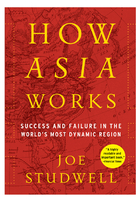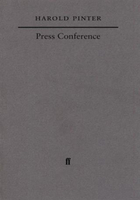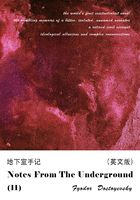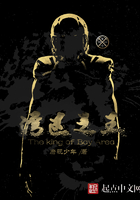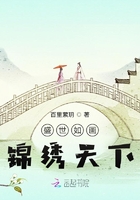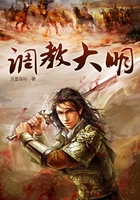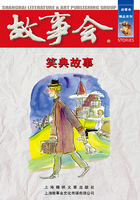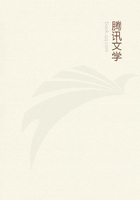Left to right: U.S. Army nurses Josie Nesbit, Maude Davison, and Helen Hennessey. Davison, the chief Army nurse in the Philippines and a World War I veteran, came over from headquarters on Corregidor Island to inspect the Bataan hospitals.
JANUARY 1941
U.S. Army General Hospital No. 2, South Bank of the Real River, Bataan
Casualties swamped Hospital No. 1's surgical wards, so the Army sent bulldozers to clear space elsewhere in the jungle for a convalescent hospital. Army Nurse Josephine "Josie" Nesbit agreed to supervise the nursing staff at Hospital No. 2.
This was Josie's second tour of duty in the Philippines but her first in wartime. She served second to ANC Philippine Commander Maude Davison. Josie had a firm chin and a reputation for unyielding honesty. She seemed intimidating but was often more like a mother than a commander, which was why the Filipino nurses soon took to calling her "Mama Josie."
Josie followed ten miles of narrow trail from the coastal village of Mariveles to the site for the convalescent hospital. Enlisted men from the medical corps carried in blankets, sheets, pajamas, pillows, morphine, quinine, sulfa, and vitamins. They buried the drugs in deep trenches to protect them from enemy bombings.
Hospital No. 2 started out with five chairs and thirty tables. A local planter helped by hiring carpenters to construct more tables to hold supplies and for the mess, or meal service. Carpenters also made benches, beds, medicine cabinets, brooms, fly swatters, urinals, and laundry baskets, all from bamboo. Rice straw stuffed into mattress covers made surprisingly comfortable beds. The nurses arranged desks and medicine cabinets under stands of bamboo and acacia trees. One of a few pup tents kept medical records dry.
"We had a tent over the records, but no tent over the patients. I guess the Army thought the patients would dry out quicker than the records," Army Nurse Sally Blaine said.
Sally's first job was to set up the mess. The Army had retreated so fast, pans used for cooking at Sternberg had been carried over dirty. "We sat down in streams with these dirty pans, and we scoured them with rocks and sand," Sally said. That, however, was the least of her challenges.
"Women had a hard time going to the field with soldiers… . There was a sergeant who swore, 'I ain't going to have no damn woman tell me what to do in my kitchen.'"
Josie assigned Sally to set up wards, which quickly filled with patients. Bulldozers cleared underbrush to expand Hospital No. 2 along the Real River, which was a shallow stream in the current dry season. They left standing a canopy of mahogany, acacia, and bamboo for shade and to hide the sprawling hospital from Japanese planes. Soon Sally had set up seven wards among tangled vines and connected by jungle paths.
Army Nurse Ethel "Sally" Blaine before the war.
In the foreground, wounded Filipino soldiers eat at a jungle hospital on Bataan. American soldiers are shown at tables in the background.
"I cried at first every time we admitted patients," Sally said. "I would cry and cry when I heard one had died. Finally an older nurse said, 'Sally, you've got to stop this. You can't cry every time one dies, or you're going to be crying all the time.' So I got a grip on myself. I'm sure it affected a lot of us. But we didn't talk about it."
General MacArthur sent a message to Bataan from Corregidor on January 15:
Help is on the way from the United States. Thousands of troops and hundreds of planes are being dispatched. The exact time of arrival of reinforcements is unknown… . It is imperative that our troops hold until these reinforcements arrive.
No further retreat is possible.
Medical staff greeted the news with shouts, applause, hugging, and kissing. A bit later someone caught a radio newscast from San Francisco. President Roosevelt had promised that "the skies will be black with planes over your heads."
Still, the nurses' work continued under constant threat of falling enemy bombs. "We were the first nurses in the United States Army to be subjected to actual combat," said Josie. "On Bataan, there were simply no rear areas." Rear areas are typically safe places far enough behind the front line to avoid combat.
"The first time they told us to take cover, I did as I was told," said Sally. "When I looked up, I looked right into the eyes of a patient who couldn't move. I felt so ashamed that I got up. I never again threw myself down in the presence of my patients."
Josie Nesbit maintained morale by example. She knew hard work like an old friend. When she was born two days before Christmas 1894, hard times had a choke hold on the Nesbit farm near Butler, Missouri.
The seventh of ten children, Josie started her chores before daylight, and days stretched long, like a soybean row vanishing into the horizon. An orphan at age twelve, she lived with her grandmother and later a cousin, growing tall and big-boned, and needing size-thirteen shoes.
At sixteen, Josie left home for nurses' training. Four years after graduating, she enlisted as a reserve Army nurse. Peacetime military life offered many advantages. Josie would never go hungry again, and someone else cooked and did the dishes. The work was less grueling than farm labor and more interesting. As a young nurse Josie hiked the American Rockies, swam the Hawaiian surf, and rode a camel through Egypt's Valley of the Kings.
The younger women on Bataan appreciated Josie's compassion, and she did her best to replace personal items her "girls" had been forced to leave. Josie begged Air Corps pilots flying to outer Philippine islands to bring back shoes and underwear.
Josie also helped ensure some privacy for the women, procuring a number of army-issue canvas field shelters. She acquired sheets of burlap to section off a part of the jungle where the nurses slept. Upstream from the main camp, corpsmen built a burlap fence around a pile of rocks in the middle of the river so the nurses could bathe out of sight. They sat on the cool, wet rocks, water streaming over them.
U.S. Army nurses at Hospital No. 2 bathe in a stream bordering the hospital.
It was one of the only places the women could relax. They washed off the blood and grime and stole a few moments away from pain and death.
Occasionally they might sing a popular song. "You are my sunshine, my only sunshine…" or play together, splashing in the water. A large tree root growing from the stream bank formed a natural water slide, a place to ease tension, to shout and laugh, even as gunfire sounded through the jungle.
One afternoon Nurse Maude "Denny" Williams had the pool to herself. Hearing a rustle in the bushes, she feared a peeping Tom. But it was flying steel peppering the leaves of a banyan tree. An enemy plane swooped low, its gunner firing away. Denny leapt from the water. Hiding under a bush, she prayed for her life.
A ten-year veteran Army nurse anesthetist, Denny had resigned two years earlier to marry William "Bill" Williams, a Caltex Oil Company executive in Manila. When the war started, Maude Davison had immediately asked Denny back to work at Sternberg Hospital. Bill joined the Army as it retreated to Bataan, and Denny joined the nurses working at Hospital No. 2.
When the bullets stopped flying, she grabbed her clothes and went back to work.
"Did you hear about Denny being strafed?" The story spread. "She didn't want to die with only her dog tags on." Denny laughed with her friends, but that moment under the bush, she'd faced the facts. Some nurses still believed they'd be rescued. "Common sense told me we were involved in a dire disaster here."
A letter that Army Nurse Dorothy Scholl wrote to her family from Bataan. In early February mail was still getting out of Bataan, with Air Corps pilots making supply runs to the outer Philippine Islands.
DAYS STRETCHED INTO WEEKS. EVERYONE WENT on half rations. Heavy fighting continued. In one thirty-six-hour stretch the surgical teams at Hospital No. 1 performed 420 operations.
At Hospital No. 2, one nurse had a small radio. At night the nurses gathered to listen to the Voice of Freedom, a U.S. military broadcast from Corregidor, or KGEI San Francisco. Near the end of January they heard about the first American convoy to head overseas since Pearl Harbor. Ships carrying troops and ammunition had just landed-in Northern Ireland. Where were MacArthur's promised reinforcements to the Philippines?
The fighting raged closer. When the front line came within fifteen miles of Hospital No. 1, the order came to move back. Nurses packed supplies and equipment and loaded patients into trucks.
The new site for Hospital No. 1, a former motor pool and repair shop, was on the East Road near the tip of the peninsula. The place was cool and breezy and shaded by leafy hardwood trees. Frances Nash and her crew turned the one wood-frame building in the center of the compound into an operating pavilion.
At Hospital No. 2, when the patient load reached two thousand, twenty-eight nurses transferred in from Fort Mills Hospital on Corregidor to help. Even patients lent a hand. Two men, each missing one arm, learned to work together rolling bandages.
Still, nurses worked twenty hours a day. They began each morning carrying water from Real River to bathe their patients. They cleaned wounds, applied sulfa powder, changed dressings, and gave morphine shots.
"There's not much we could do for them," Millie Dalton said later. "There's no way of actually keeping things clean much in the jungle."
Millie's ticket to nursing school had been a winning essay she wrote for a newspaper contest as a teenager. A woman journalist from the paper later offered to lend Millie money for training at Grady Memorial Hospital in Atlanta. But nothing she experienced at Grady prepared Millie for the helplessness she felt now.
Hospital No. 1, on Bataan, is marked as a medical and noncombatant facility by the red cross on the tin roof and another cross on the tarpaulin spread on the ground in front of the hospital, partially shown at right.
"Seeing these soldiers with no place to go, and not able to get out of the way of anything," Millie said. "It was devastating to watch."
Sally Blaine spent four hours taking the temperatures of two hundred men in an orthopedic ward.
"I finally said to my ward officer, 'What's the sense of taking temperatures? No one will ever read the records.' If you saw a man had a high fever and chill[s], you didn't need a thermometer to tell you he needed quinine."
Her ward officer agreed, and they stopped taking temperatures.
Hospital No. 2 was no longer limited to convalescents. Surgical patients came straight from brutal hand-to-hand fighting on the front line to No. 2's operating room-a bamboo pavilion open to weather and any bug or bit of nature that flew in.
Ethel Thor supervised the operating theater with a subtle sense of humor and serene manner, keeping patients moving in and out as quickly as possible. Nurses assisted at three surgery tables and two debridement tables. Surgeons debrided, or sliced away, dead tissue from burns and shrapnel wounds, or even live tissue when that was the only way to halt blood loss. Ethel remained unruffled, except when a patient screamed in pain because hurried doctors sliced before the anesthesia took effect.
The dwindling drug supply worried Ethel. Nurses resorted to ether for sedation, "going back to Civil War times."
On breaks, Ethel sometimes took advantage of the lights in the surgery to sit and read. She kept a small journal, noting events in sparse words. She wrote home to her sister and nieces on February 5:
Hello folks,
Just a line to let you know everything's OK. Two meals a day but we usually manage to get a few snacks between meals. The two things I miss are good coffee and rolls (that's in the line of food). Just like a camping trip-dirt, bugs and everything else that goes with it. Do my own washing and still manage to get a bath every day… . Don't worry as our Uncle Sam is taking care of us.
While primitive conditions and lack of medicine challenged the nurses' professional standards, enemy patients tested their ethics. The women loathed the Japanese soldiers and disliked treating prisoner-of-war patients. But they gave all the wounded their best care and treated them with compassion.
One such prisoner had a badly set broken arm, which doctors decided to rebreak and reset. As the anesthetist tried to put the Japanese man to sleep, he jumped off the table shrieking, "Don't kill me. Please don't kill me!" The interpreter translated.
Corpsmen grabbed the Japanese soldier and held him down, while nurses tried to make him understand he was safe. He struggled and cried until the anesthetic took effect. When he woke after the procedure, no interpreter was needed. "He seized our hands and hissed and jabbered his gratitude and amazement; it was pitiful, and somehow embarrassing," said Army Nurse Juanita Redmond.
An operating room under a tent at Hospital No. 2. Doctors try to save a near hopeless case shot in the neck, apparently severing the spinal cord. Lieutenant Colonel Jack Schwartz (left) operates, with Captain Paul S. Roland and Army Nurse Ethel Thor assisting. During the operation, a bomb landed nearby. Doctors paused until the ground and table stopped shaking, then continued.
A twenty-two-year-old Japanese patient who expected to be shot gets fine treatment instead. Enemy soldiers received the same medical attention from nurses and doctors as the American soldiers did.
The battle on Bataan raged into February. ANC Commander Maude Davison transferred five more nurses from Corregidor to help Josie Nesbit at Hospital No. 2. One of them, Ruth Straub, kept a diary.
February 11
More dogfighting overhead. Our main danger-Oh, just as I am writing, the [Japanese] dropped bombs nearby. Much more of this and we'll all be nervous wrecks. To continue, our main danger is shrapnel from our own antiaircraft. Yesterday, a piece went through a mattress. Fortunately, the patient had just left his bed… . Here they come again. Whew! Where is all the bravery I thought I possessed?
February 12
A huge iguana kept prowling through the underbrush by my bed. Sounded like it might be a sniper.
February 16
Eight of us jumped into a small foxhole in a raid today and nearly killed each other. One of the cooks was shot through the head… . Rats are chewing up our clothes.
Nurses' quarters, Hospital No. 2, Bataan.
Ten days later, a rat crawled into bed with Army Nurse Rita Palmer and bit her. Luckily, the wound wasn't serious.
"Mostly, you were scared to death you were going to get bit by a snake," Millie Dalton said. "I went to bed one night and had to get a gecko out of my bed."
There seemed no end to the horrors and indignities of an open-air jungle hospital. Poor sanitation became a health hazard. Thousands of people relied on rudimentary latrines. Dysentery "accidents" on the way to the latrines were common.
"In the jungle heat the stench was terrible," said one nurse. "When the toilet paper was almost gone, we could only give everyone two small sections with a tiny piece of soap. Most relied on nature's leaves. It was so ridiculous that at times we would laugh."
Maggots appeared along the paths on the ground. Flies and mosquitoes carried the dysentery everywhere. While nurses ate, they used one hand to wave flies away from their food. A soldier managed a joke about it. "FDR said the sky would be black with them. Did he mean flies instead of planes?"


